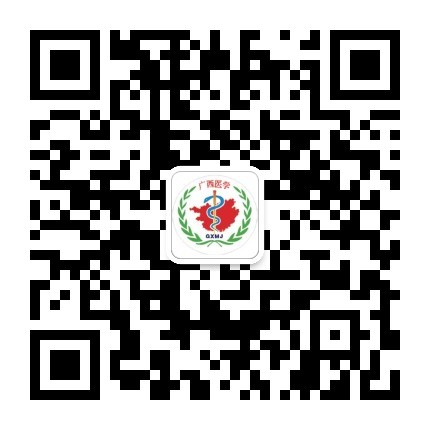目的探讨血府逐瘀汤联合穴位针刺治疗对急性心肌梗死(AMI)患者缺血再灌注损伤、血清炎症因子水平的影响。方法将90例AMI患者随机分为联合组与对照组,各45例。在常规对症治疗的基础上,给予对照组穴位针刺治疗,给予联合组血府逐瘀汤联合穴位针刺治疗。比较两组患者的临床总有效率,以及治疗前后中医证候评分、心肌损伤指标水平、血清炎症因子水平及24 h动态心电图相关指标的变化情况,并统计两组患者治疗期间不良反应的发生情况。结果联合组临床总有效率为91.11%,高于对照组的73.33%(P<0.05)。治疗后,两组患者的胸痛、胸闷、气短、心悸、疲倦乏力评分及中医证候总评分,血清心肌肌钙蛋白Ⅰ、肌酸激酶同工酶、氨基末端B型利钠肽原、白细胞介素6、高敏C反应蛋白、肿瘤坏死因子α水平,以及24 h内缺血发作次数、ST段下降幅度、ST段下降时间较治疗前降低或减少,且联合组上述指标低于或少于对照组(P<0.05)。治疗期间,两组患者不良反应发生率差异无统计学意义(P>0.05)。结论在常规对症治疗的基础上,采用血府逐瘀汤联合穴位针刺治疗可以提高AMI患者的临床疗效,改善胸痛、胸闷、气短、心悸、疲倦乏力等临床症状,降低患者心肌损伤指标水平及血清炎症因子水平,改善24 h动态心电图相关指标,对缺血再灌注损伤具有保护作用,安全性较高,值得临床应用推广。
当前位置:首页 / 血府逐瘀汤联合穴位针刺治疗对急性心肌梗死患者缺血再灌注损伤及血清炎症因子水平的影响
论著.中医药与民族医药诊疗
|
更新时间:2023-12-22
|
血府逐瘀汤联合穴位针刺治疗对急性心肌梗死患者缺血再灌注损伤及血清炎症因子水平的影响
Effect of Xuefu Zhuyu Decoction combined with acupoint acupuncture therapy on ischemia reperfusion injury and serum inflammatory factors levels in patients with acute myocardial infarction
广西医学 2023第45卷19期 页码:2343-2348
作者机构:张丽,在职硕士研究生,主治医师,研究方向为中医药防治心血管病。
基金信息:安徽省卫生和计划生育委员会中医药科研课题(2016zy100)
- 中文简介
- 英文简介
- 参考文献
ObjectiveTo investigate the effect of Xuefu Zhuyu Decoction combined with acupoint acupuncture therapy on ischemia reperfusion injury and serum inflammatory factors levels in patients with acute myocardial infarction (AMI). MethodsNinety patients with AMI were randomly divided into combination group or control group, with 45 cases in each group. On the basis of conventional symptomatic treatment, the control group received acupoint acupuncture for treatment, whereas the combination group was treated with Xuefu Zhuyu Decoction combined with acupoint acupuncture. The total clinical effective rate, and pre- and post-treatment Traditional Chinese Medicine syndrome score, myocardial injury indices levels, serum inflammatory factors levels, changes of indices related to 24-hour dynamic electrocardiogram were compared between patients of the two groups; furthermore, the occurrence of adverse reactions during treatment was statistically analyzed in the two groups. ResultsThe total clinical effective rate in the combination group (91.11%) was higher than that in the control group (73.33%, P<0.05). After treatment, the scores of chest pain, chest distress, shortness of breath, palpitation, fatigue and weariness, and the total score of Traditional Chinese Medicine syndromes, serum cardiac troponin Ⅰ, creatine kinase isoenzyme, N-terminal pro-B-type natriuretic peptide, interleukin 6, high-sensitivity C-reactive protein, and tumor necrosis factor α levels, as well as the frequency of ischemic attack within 24 hours, decreased amplitude and duration of ST segment in the two groups were decreased or reduced as compared with before treatment; moreover, the combination group yielded lower or less aforementioned indices as compared with the control group (P<0.05). There was no statistically significant difference in the incidence rate of adverse reactions during treatment between patients of the two groups (P>0.05). ConclusionOn the basis of conventional symptomatic treatment, employing Xuefu Zhuyu Decoction combined with acupoint acupuncture therapy can improve AMI patients′ clinical efficacy, ameliorate clinical symptoms in terms of chest pain, chest distress, shortness of breath, palpitation, fatigue and weariness, etc., decrease levels of myocardial injury indices and serum inflammatory factors in patients, ameliorate indices related to 24-hour dynamic electrocardiogram, exerting protective effect on ischemia reperfusion injury, with relatively high safety, and it is worthy of application and promotion.
-
无




 注册
注册 忘记密码
忘记密码 忘记用户名
忘记用户名 专家账号密码找回
专家账号密码找回 下载
下载 收藏
收藏
